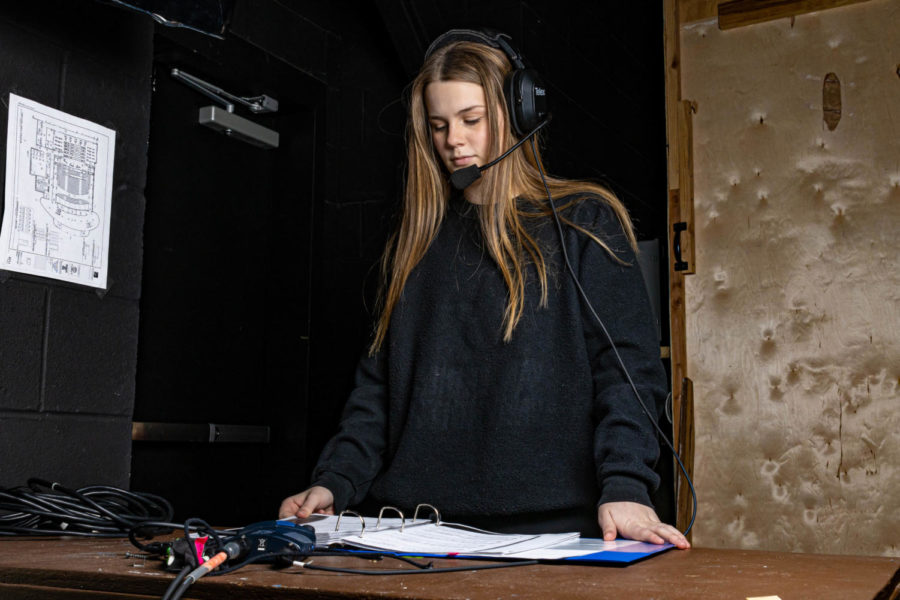The meaning of managing
Sophomore reflects on year of theater
Photo by Braylen Garren
Sophomore Carly Hickerson has many responsibilities as a stage manager.
March 30, 2022
The velvet curtain opens, lights illuminate the stage and she plops down on a chair as black as her outfit, making herself comfortable for the 40 minutes of performance. As each light fades off the actors, they exit the stage for a quick costume change and a new hairstyle, now completely transformed for the next scene. However, sophomore stage manager Carly Hickerson is too busy dealing with her own chaos of changing the set.
Hickerson’s first opportunity to stage manage was for “The Miraculous Journey of Edward Tulane,” Tiger Theatre Company’s choice show for UIL One Act Play in 2022.
While not being shy enough to curl up in a corner instead of confrontation, she is also not the loud and assertive personality many associate with leadership roles such as stage management. Part of her job description is to sternly explain rules of the theater if someone has disobeyed them. However, she’s not a master of the “stern” part.
Often the director, Bonnie Flieder, will hear the continuous laughter and chatter of students during rehearsals when the room was instructed to remain silent. Flieder then asks Hickerson to “yell at them.” She usually doesn’t follow these instructions very well, instead opting to tap talkative actors on the shoulders and whisper, “Flieder told me to yell at you.”
Another difficulty for the silent stage manager is leading students grades above her. As a sophomore, she must tell upperclassmen what to do, where to go and how to behave. The task, she admits, is daunting. It feels like somewhat of a role reversal. In the classroom, the seniors are assumed to be more all-knowing and superior. However, on the stage, grades are irrelevant. What matters is roles, and the role Hickerson plays has her as the person overseeing and orchestrating every aspect of performances.
















